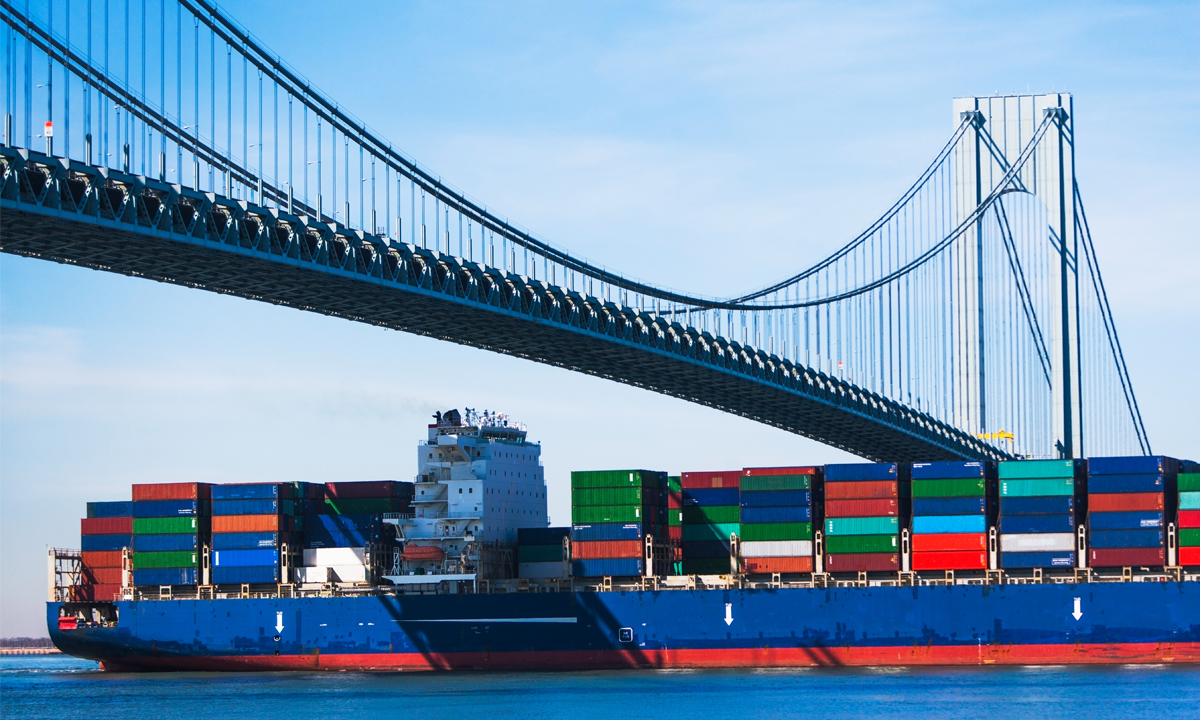Judging by financial markets, one might think the volatility that rocked stocks, bonds, and the dollar in the spring was a bad dream. The S&P 500 had gained nearly 33% from its early April low as of September 15, fueled in part by hopes of an AI-driven profits boom, relatively stable US inflation, expectations of lower interest rates, and the Trump administration’s tariff deals with Japan and the European Union at lower-than-expected levels.
Yet investors may be making the same mistake they did nearly 20 years ago when most shrugged off signs of a bubble in the US housing market, said Ken Rogoff, a Harvard economist and co-author of “This Time Is Different,” a history of centuries of crises up to and including the global financial crisis.
“Don’t confuse the market with growth,” Rogoff said in a recent interview. Artificial intelligence (AI) may boost productivity and corporate profits, but it’s likely to have a bigger impact on the labor market than globalization, he contended. Tariffs, meanwhile, can weigh on growth and will ultimately hit consumers through higher prices.
Rogoff, a chess prodigy in his youth, discussed the economic outlook, why the dollar is “Our Currency, Your Problem” according to the title of his latest book, and what chess can tell us about AI’s prospects. He spoke with John Romeo, CEO of the Oliver Wyman Forum, the think tank of consulting firm Oliver Wyman.
Government spending is historically high in many parts of the world and the United States is running a big deficit during an economic expansion. Why has there been so little pushback from the bond markets?
There hasn't been zero pushback. When Larry Summers gave his secular stagnation speech, the real return on the US 10-year bond was close to minus 1%. Now it's around 2%. Interest rates have normalized. That’s the big game-changer. It makes a world of difference to the sustainability of government debt. The idea of running giant deficits even in peacetime was predicated not on AI, not on fast growth, but on lower forever interest rates — that it was a free lunch.
That mentality still reigns in Washington, where most politicians believe you can't win an election without running big deficits. So I think until we have some kind of crisis, we're going to keep doing it.
The dollar has fallen about 7% on a trade-weighted basis this year. Is this just the correction of an overvalued position or the sign of more serious problems?
When an exchange rate gets way out of line on a purchasing-power basis, you can't predict what's going to happen in the next day or week, but over a couple of years it likely will move toward reflecting purchasing power. That’s why I think the yen will go up; it’s really low now, and Japan’s had virtually no inflation. The opposite is the case with the dollar.
I don’t think people are wholesale bailing out of dollars, but countries are diversifying in quiet ways. Europe and China are building digital currencies to try to have more international transactions conducted in their currencies and, more importantly, outside the prying eyes of US authorities. China put up with dollar dominance for a long time, but it started moving away about 10 years ago. It stopped accumulating reserves and started to work on other payment mechanisms for trade. The Europeans don't like the dollar’s dominance either because they don't always agree with our policies, like the sanctions we imposed on banks doing business with Iran in 2014.
The dollar isn’t disappearing tomorrow. In fact, I envision rebalancing taking a long time. When it settles, the dollar may still be on top but with a significantly smaller market share. Americans take the dollar’s dominant position for granted. They forget that in 1971, when Nixon went off the gold standard, Europe was the core of the dollar bloc. Now it’s not even part of it. We're going to lose our dominance in Asia, which today constitutes half the dollar bloc.
I was taught tariffs were bad for prosperity, but officials in Washington say we're earning $300 billion a year from the tariffs and no one in America is paying the bill. What are your thoughts on the issue?
Tariffs are bad for growth — almost any tax is. Price rises have not come through yet but that’s just a matter of time. Companies have been reluctant to raise prices. But at some point, their profits are going to fall so much that they will have to pass most of the tariff costs on to consumers in higher prices.
If we end up with 15% tariffs, that wouldn’t be the end of the world, but are we ever going to have peace in the tariff war? I don't think so. This business of quietly submitting and turning the other cheek is not a stable political equilibrium.
You've always been optimistic about the impact of technology. How are you thinking about AI over the next few years?
In the long run, it's bigger than the printing press. And it will revolutionize our society in ways we can't imagine. The internet has rewired everyone’s brains. Young people just don't spend the time that my generation did in trying to remember stuff, and it affects your entire brain chemistry. With the advent of AI, I kind of worry that people are not going need to think either.
Short term, AI will be bigger than globalization in terms of its impact on the labor force. We now have populists all over the world thanks to globalization. Do you think AI, if it's allowed to grow at the rate some tech futurists predict, is not going to have a similar effect on our politics? It’s going to be very destabilizing and lead to a lot of policies which are inimical to growth.
What about AI’s impact on innovation?
I did a debate with Gary Kasparov and others at Oxford in 2012. They were arguing that nothing's ever going to get invented again, growth is slow. And I said, if you look at chess [where computers have bested humans since IBM’s Deep Blue defeated then-world champion Kasparov in 1997], AI’s been astounding. Why would you think that's not going to happen elsewhere?
Very soon, in wars such as Russia-Ukraine, drones won't need human operators. In chess, artificial intelligence has shown that the winning strategy is to take hyper-aggressive moves that humans think are not reasonable. If some day we have automated drones, with a human general running them on one side and an AI general on the other, how long before the human general never wins, and everyone has hyperaggressive AI generals?


